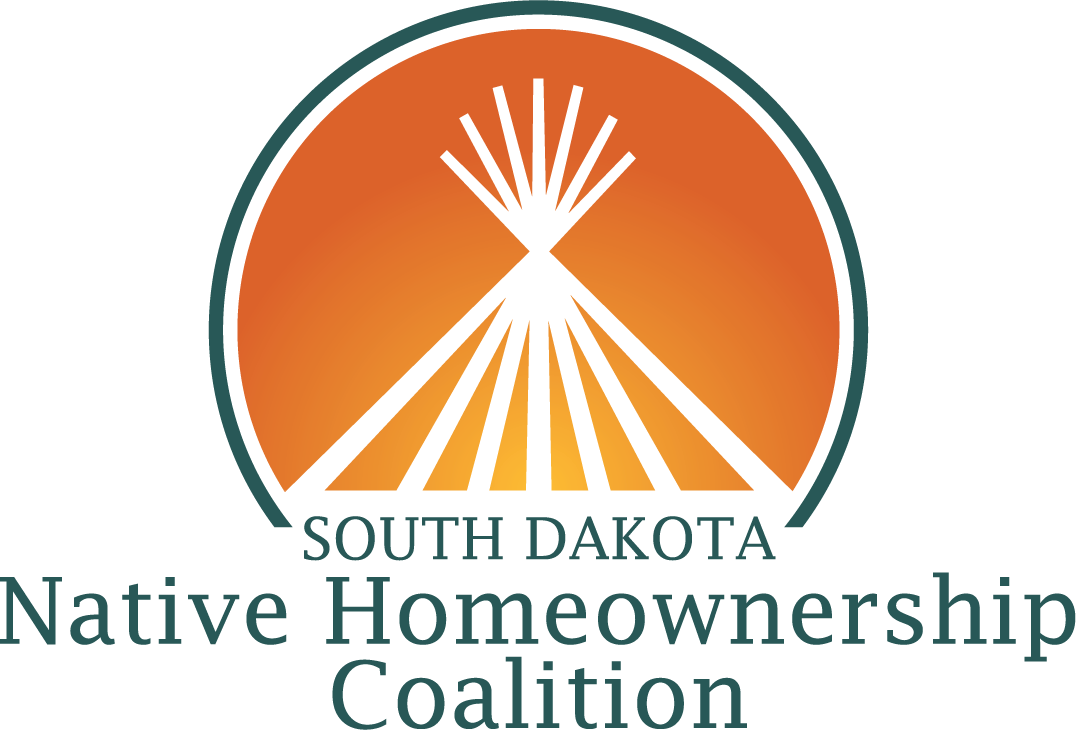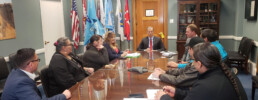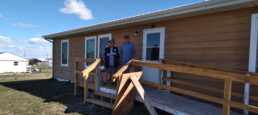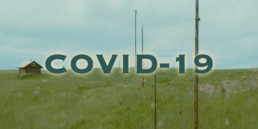Coalition Members Discuss Native American Homeownership on Freddie Mac Podcast
During the Freddie Mac Home Starts Here podcast, James Cromartie from Freddie Mac (a Tiospaye Member) and Tawney Brunsch (Executive Committee member) discuss the realities of homeownership. They outline, not only the challenges, but also the exciting headway that is being made to increase homeownership opportunities in Native communities.
Video by Senator Thune Describes Great Success of 502 Relending Pilot
During the 2020 OFN Virtual Conference, Senator John Thune (SD-R) shared with conference attendees how the 502 Relending Pilot is creating homeownership opportunities in Indian Country.
Thank you Senator John Thune for championing the USDA 502 relending demonstration program with the Native CDFIs in South Dakota and for supporting the work of CDFIs nationwide. Watch the video below for a personal message from Senator Thune to Opportunity Finance Network virtual conference attendees!
A Veterans Day Celebration: Native American Veteran Becomes Lakota Federal Credit Union’s First Mortgage Client
With homeownership rates hitting a 12-year high despite the COVID-19 pandemic, Norman Rogers, a U.S. Navy veteran, is celebrating this major milestone alongside many others across the nation. Rogers is the first to close a mortgage loan from the Lakota Federal Credit Union, the only federally insured depository institution on the Pine Ridge Reservation – and also a Coalition member organization.
“The housing shortage is something that impacts so many people here on the Reservation. We believe that homeownership is a viable solution, and we are excited to officially launch our mortgage product to support more families in achieving their homeownership dreams,” said Shayna Ferguson, Branch Manager of the Lakota Federal Credit Union.
Rogers and his wife Eunice care for their 16-year-old grandson, and that was the primary motivating factor in pursuing homeownership after renting for 55 years.
“Paying rent for all those years, we could have owned three houses by now,” says Rogers. Even so, he is satisfied knowing that he is providing his family with a safe place to call home, even beyond his lifetime.
Many first-time homeowners on the Reservation are building assets that will be passed onto future generations, a strategy Tawney Brunsch, Board Chair of the Lakota Federal Credit Union and Executive Director of Lakota Funds, says is critical to breaking the cycle of poverty.
“Our approach to mortgage lending entails more than the immediate need of safe and affordable housing. We are also working on a longer-term strategy that will position our children and grandchildren to be better off financially,” says Brunsch.
Ferguson and Brunsch regularly collaborate to leverage each other’s programs and provide a more impactful experience for their clients. Rogers’ homeownership journey was no exception. Through their partnership and networks, Rogers was able to tap into over $20,000 in subsidies to improve the home’s energy efficiency and offset his mortgage. By working with Lakota Funds, Rogers completed a homebuyer education course and participated in matched savings programs to multiply his down payment. The Housing Assistance Council’s Affordable Housing for Rural Veterans initiative, which is supported by the Home Depot Foundation, provided funding for a new roof, windows, and doors on Rogers’ home, which have reduced his utility costs.
“The great thing about this is that Norman immediately had a substantial amount of equity built into his home,” says Brunsch. “For people on a fixed income, like many of our Reservation families, this provides more flexibility and options in how they handle financial emergencies, should they ever come up in the future.”
As Rogers reflects on his major life events – military service, a successful career in education, establishing schools, obtaining accreditation for Oglala Lakota College, sitting on several school boards – he comes back to a moment in 1956 when he was only one of seven Native American students to graduate Rapid City High School.
“I realized I had a lot more opportunity because I lived in Rapid City. Reservations do not have the same opportunities surrounding work and school as off reservation communities. I saw that back then and I thought, ‘I can make a difference.’ I enjoyed working with kids. Our schools had really low education levels and I fought for something better. I wanted to serve the community and the kids in the community,” he says.
More than a half century later, Rogers is still serving the community. He is paving the road to homeownership for others to follow.
“People like Norman are examples for what is truly possible. He may not know it, but he is inspiring his family members, neighbors, and even our community leaders to achieve more,” says Ferguson, “I can’t think of a better way to celebrate this year’s Veteran’s Day.”
Coalition Members Partner to Deploy COVID-19 Housing Relief Funds
Three Native American nonprofit organizations – Four Bands Community Fund, Lakota Funds, and Mazaska Owecaso Otipi Financial – have been designated as partners in the SD CARES Housing Assistance Program (SDCHAP) to provide up to $1,500 in rental, mortgage, or utility assistance to families that have been financially impacted by the COVID-19 pandemic. The South Dakota Housing Development Authority (SDHDA) was awarded $10 million by the State of South Dakota to launch and administer SDCHAP.
“Knowing that low-income and minority communities have been hardest hit by the pandemic, we are grateful that the South Dakota Housing Development Authority has actively engaged Native American organizations to ensure funds are directed where they are needed most,” says Tawney Brunsch, Executive Director of Lakota Funds.
SDHDA opened the online SDCHAP application on October 22, 2020 and will be accepting applications until December 18, 2020, or sooner if funds are expended. To provide assistance with families that don’t have reliable internet access and to help process applications, SDHDA has partnered with a total of 11 organizations, just under a third of which are located on Indian reservations.
“Since COVID hit, we have seen financial burdens manifest in different ways. We can really help a lot of people with this program and are glad to be a part of it,” says Colleen Steele, Executive Director of Mazaska.
The SDCHAP application can be found at sdcareshousingassistance.com. Four Bands is assisting applicants in Dewey, Ziebach, Wallworth, Corson, Hughes, Stanley, Buffalo, and Brule Counties. Lakota Funds is supporting applicants in Oglala Lakota, Jackson and Bennett Counties. Mazaska is covering Oglala Lakota, Jackson, Bennett, Fall River, Pennington, Meade, Lawrence, Todd, and Custer Counties.
All three Native organizations and SDHDA are members of the South Dakota Native Homeownership Coalition and have been working collaboratively in various capacities over the past several years to increase homeownership opportunities for Native Americans throughout the state.
“All of the program partners are dedicated to making their communities a better place, and this is an opportunity to preserve progress on so many different levels. There is power in partnerships,” says Lakota Vogel, Executive Director of Four Bands.




